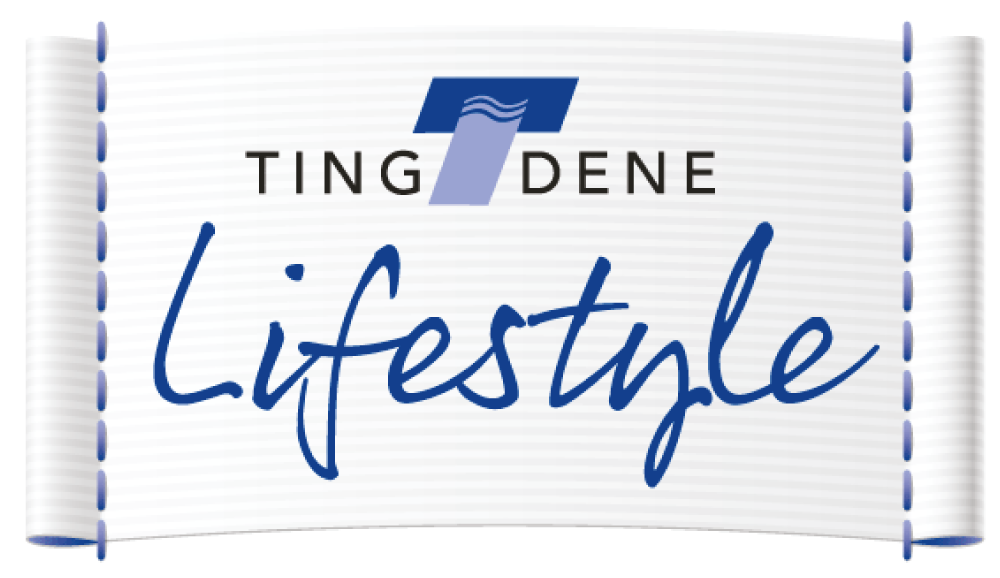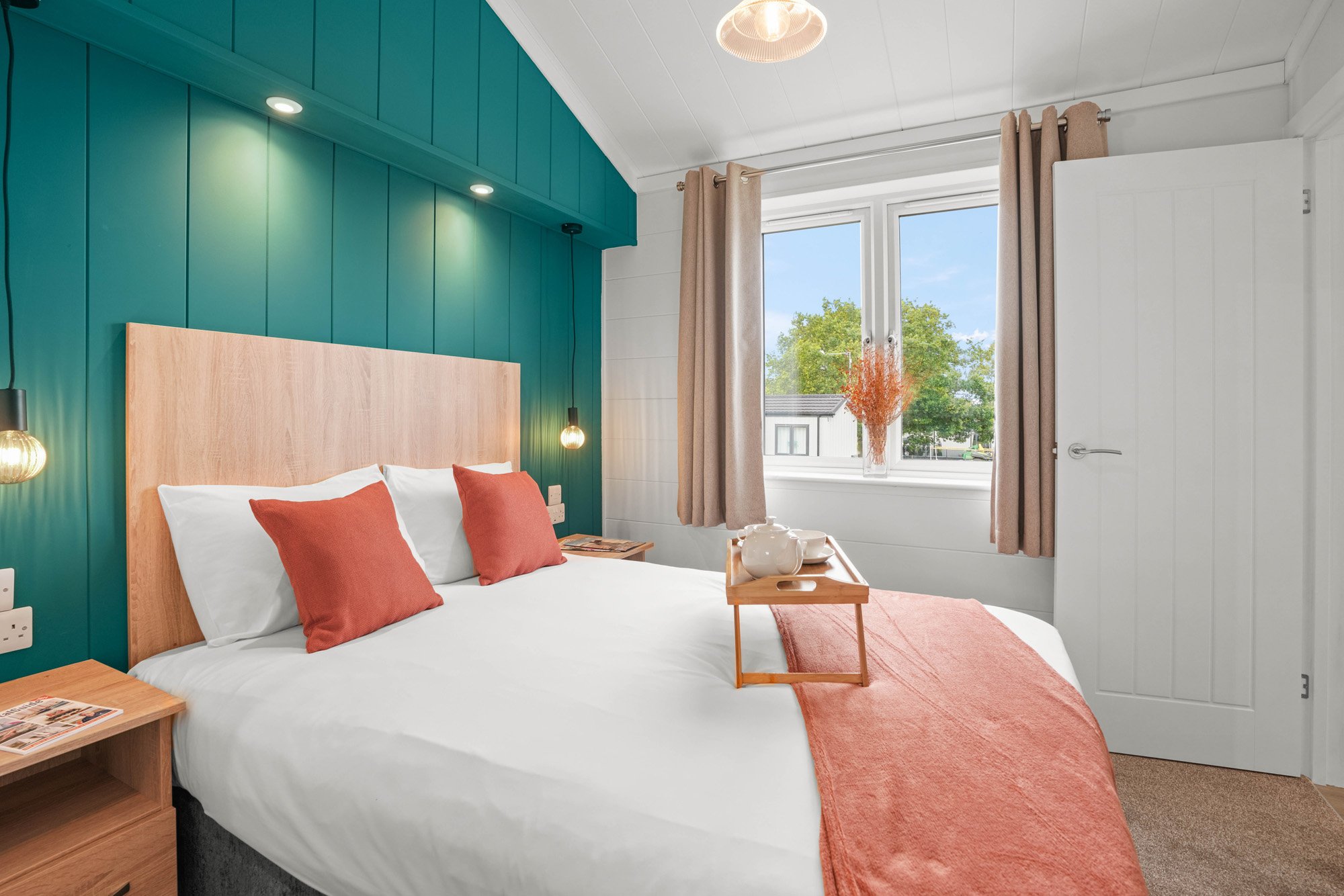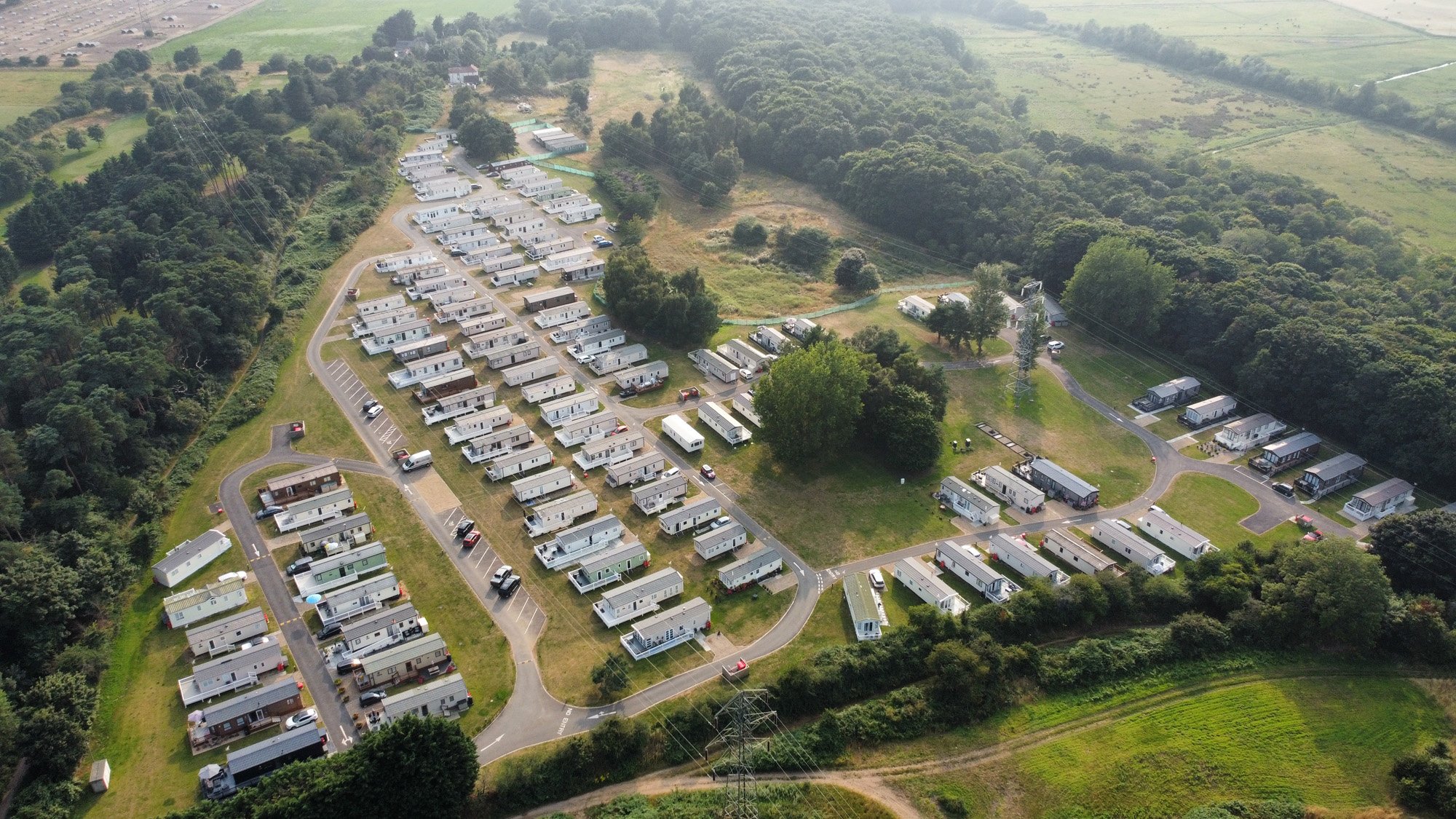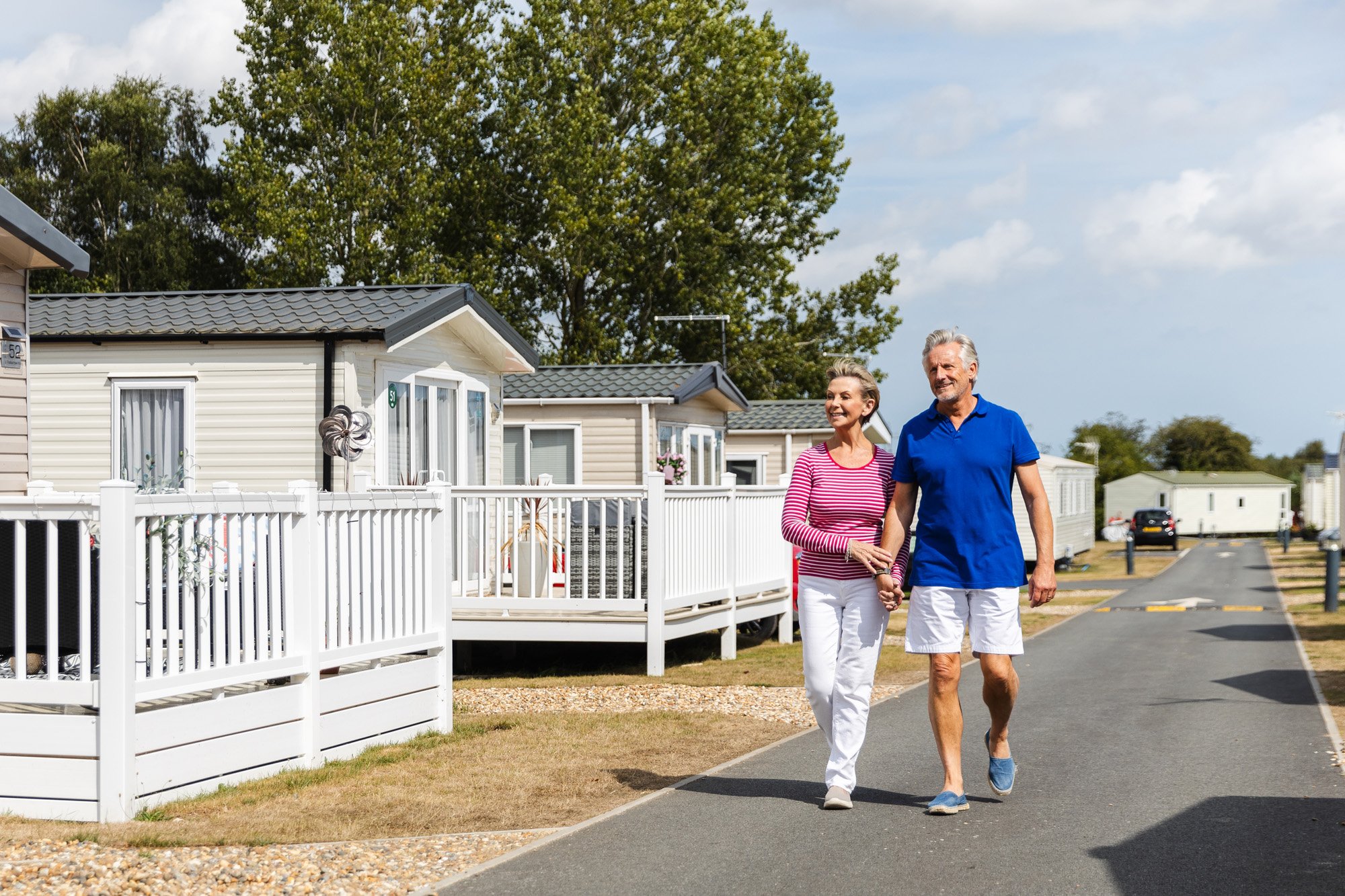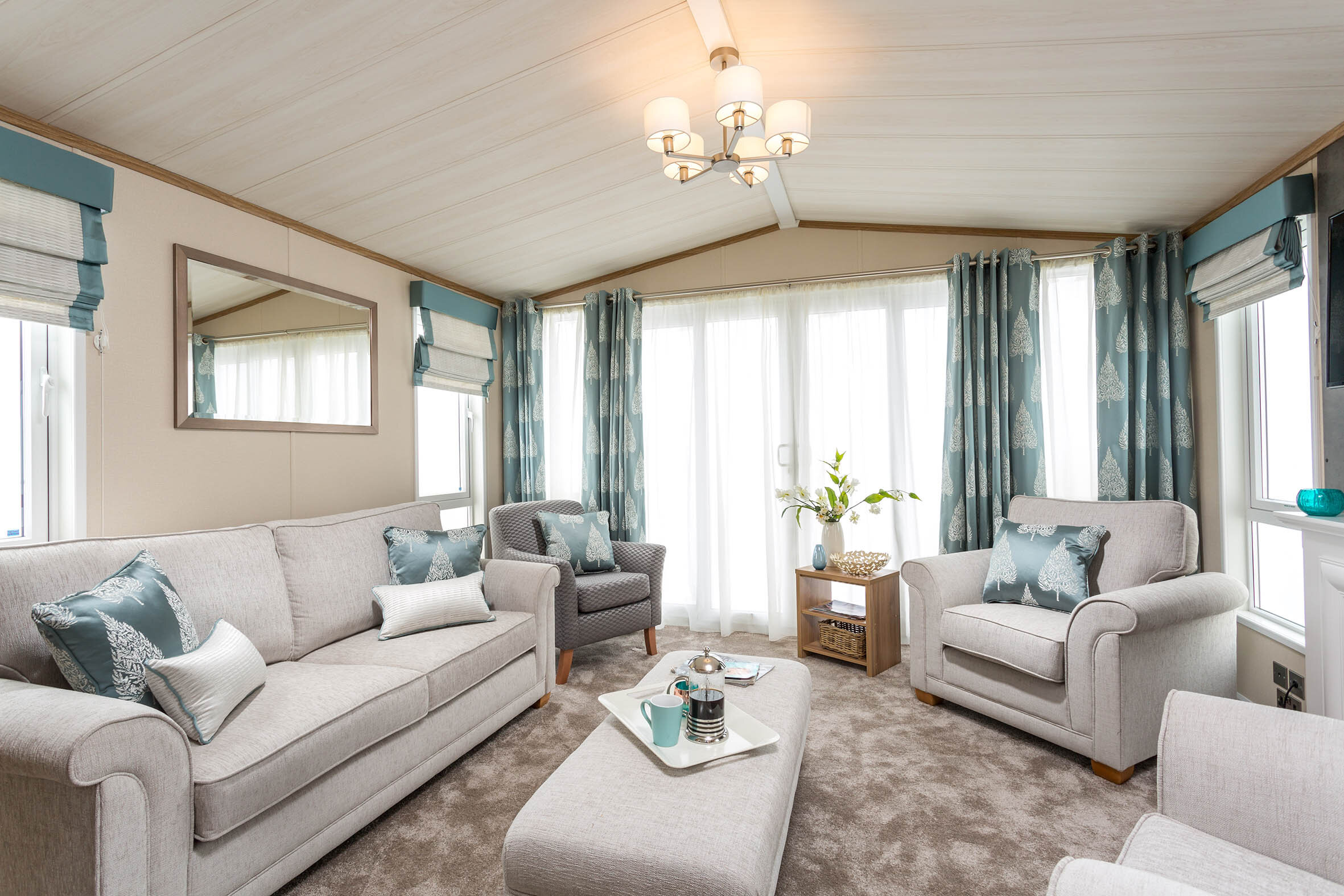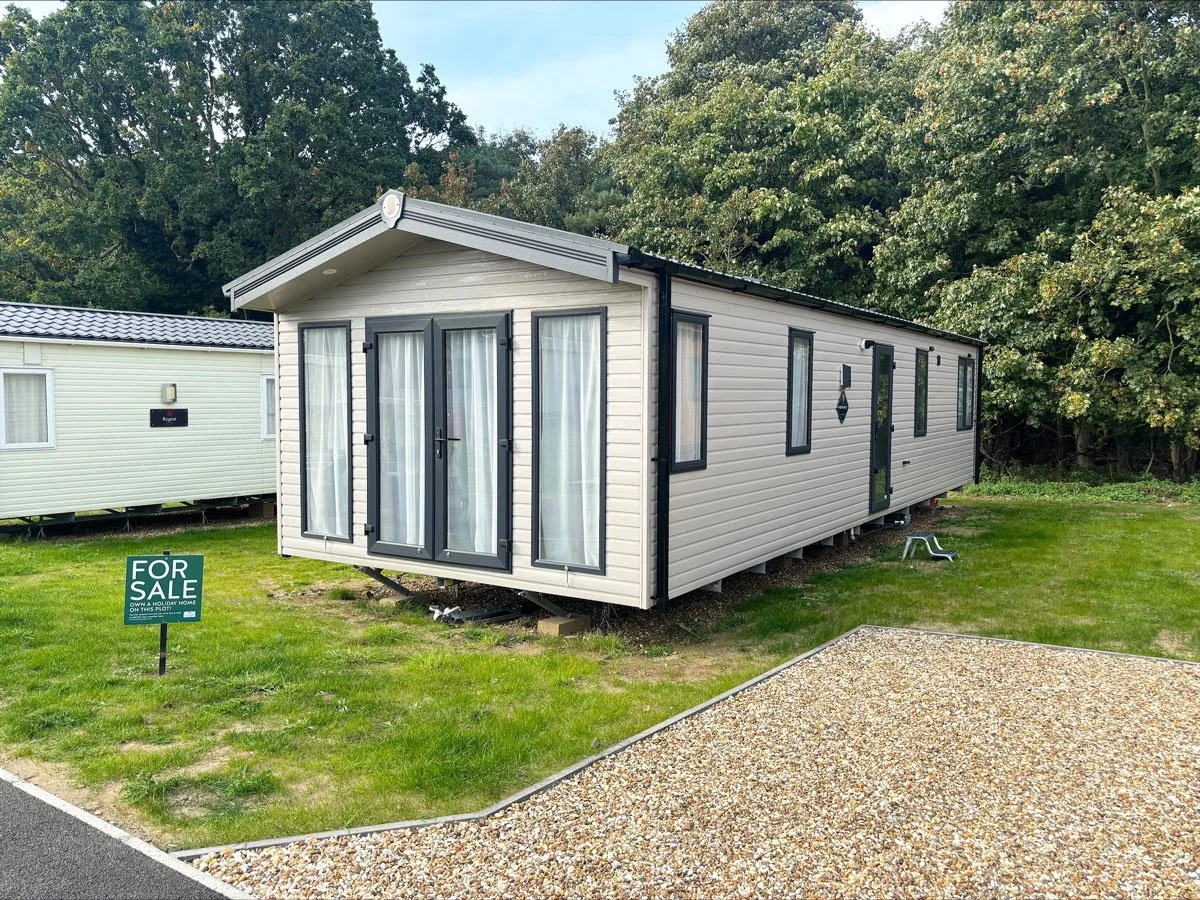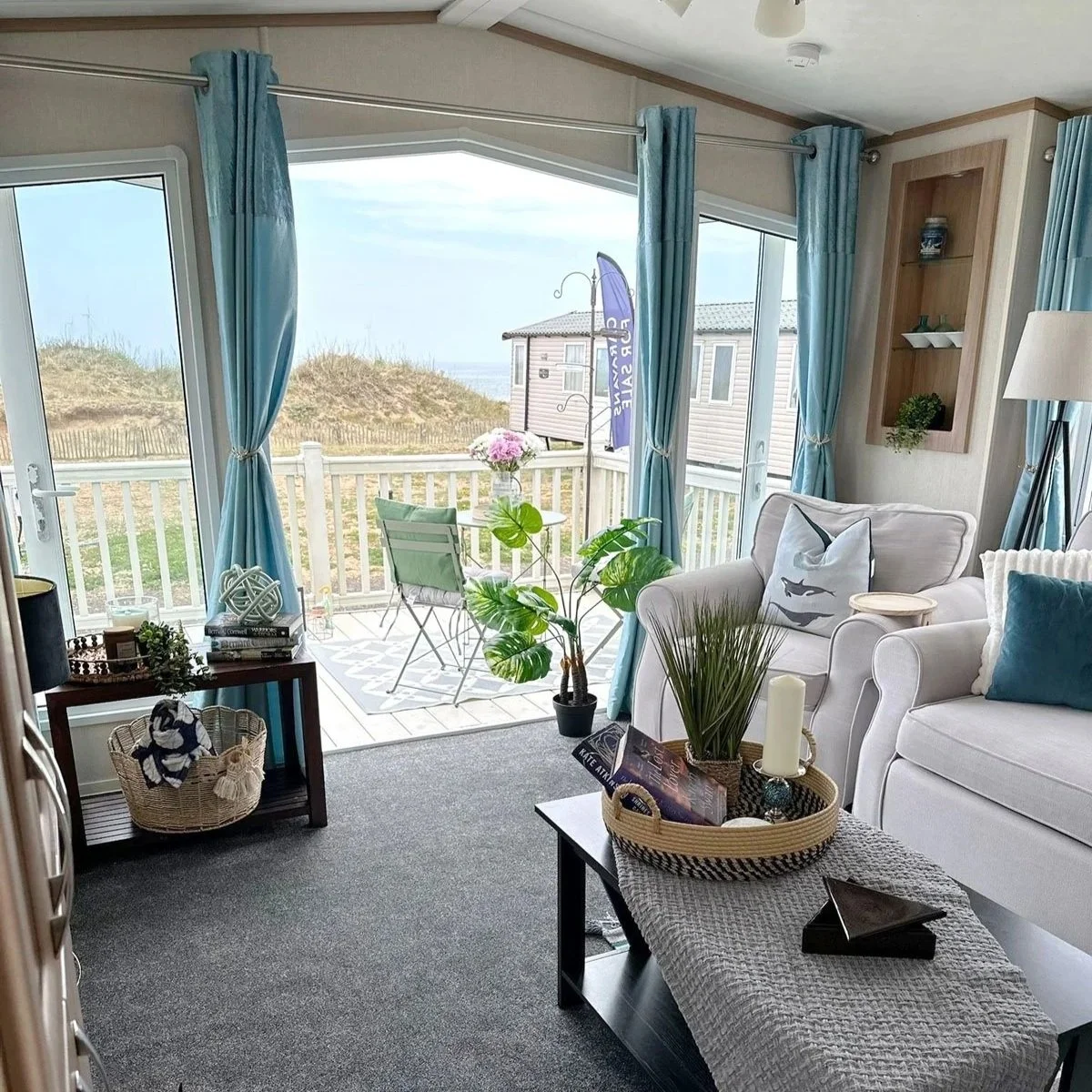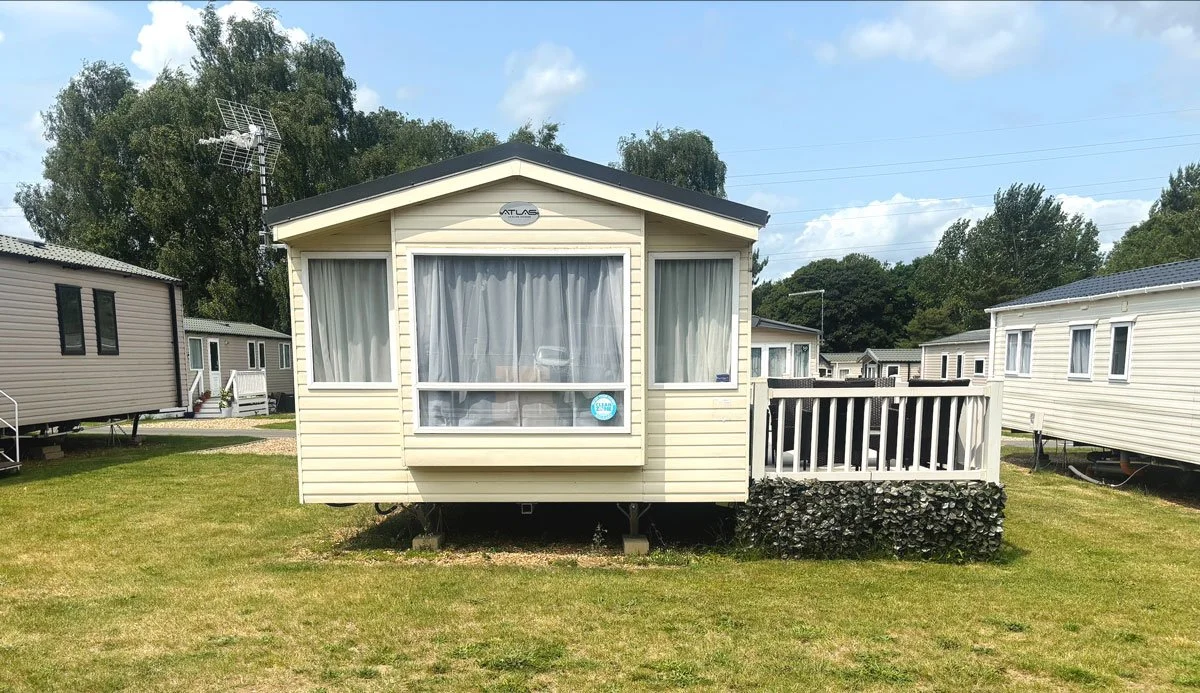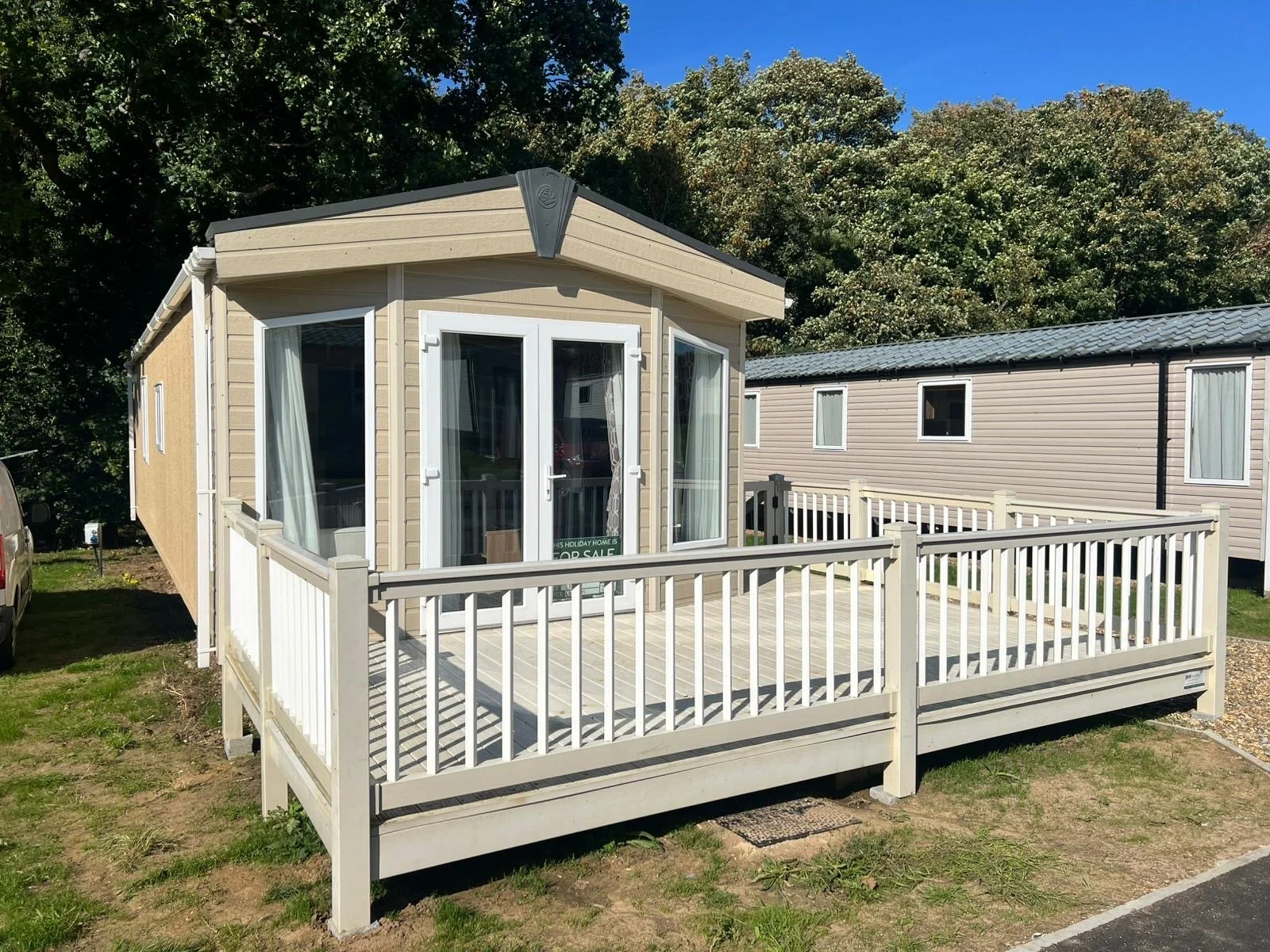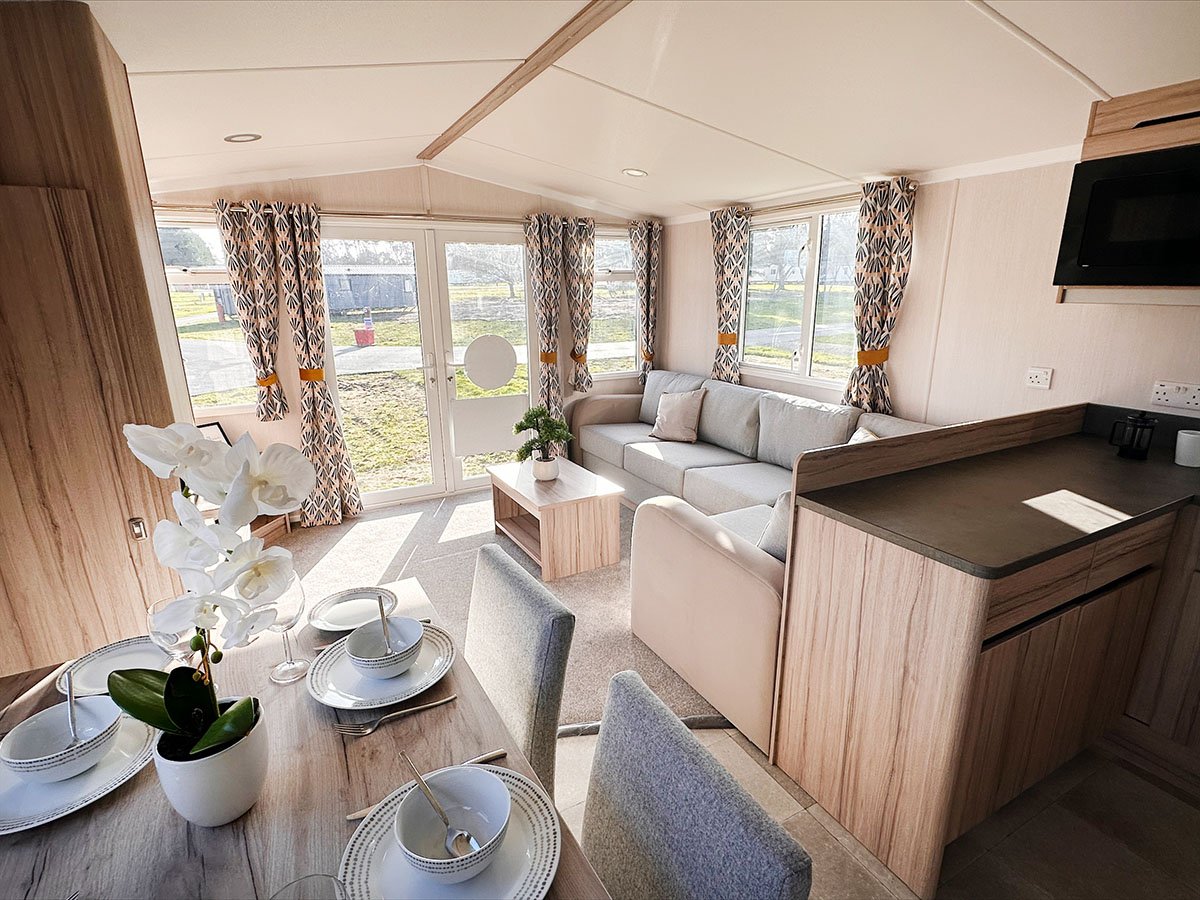Static caravan ownership can unlock a relaxed and flexible lifestyle - a chance to escape the noise of everyday life and reconnect with what matters most: peace, family time, and the great outdoors.
But if we’re honest, holiday parks don’t always get the best press. Stories of hidden fees, high-pressure sales tactics, and unclear terms have left some people feeling cautious about taking the leap.
At Tingdene Holiday Parks, we believe ownership should be empowering, not overwhelming. That’s why we created this guide to Static Caravan Ownership to:
bring clarity to the process
remove the guesswork
help you make informed decisions with confidence
Yes, there are costs, commitments, and important rules to be aware of. But there’s also the potential for genuine enjoyment and meaningful lifestyle benefits when things are done right. This is your complete, transparent look at what static caravan ownership really involves — the opportunities, the obligations, and everything in between.
What is a Static Caravan?
A static caravan is a prefabricated structure usually designed for holiday accommodation.
Static caravans are designed to be moved and transported when required, but unlike touring caravans, static caravans are placed in a semi-permanent location and are not intended to be towed frequently. The qualifying criteria for a static caravan is as follows:
The structure is on a chassis
The structure is moveable, if required
The structure meets a maximum size of 20m by 6.7m (maximum of 3.048m internal height – floor to the highest point of the ceiling)
The structure is constructed in a maximum of two parts and is movable as one structure once joined together
The structure must comply with standard BS 3632 or EN 1647.
Getting to know the costs of owning a Static Caravan
Several different running costs apply when owning a static caravan on a Tingdene holiday park.
Pitch Fee
The annual cost for siting your Caravan on a pitch on a holiday park.General and Non-Domestic Charge for Services (GNDC)
GNDC includes refuse collection, council contribution (business rates), water/sewerage usage and the cost of administering the GNDC. GNDC will vary per annum. All included services are divided equally by the total number of caravans on pitches.
While holiday parks aren’t required to follow any specific rules for this charge, we choose to operate it in line with the Ofwat guide to water resale — to ensure fairness and transparency for all our owners.
Ofwat Guidance:
https://www.ofwat.gov.uk/wp-content/uploads/2020/03/A-guide-to-water-resale-2020.pdf
GNDC is produced and invoiced based on our estimated cost for the year ahead; a breakdown of the estimate will be provided. The GNDC account is finalised by March of the following year. If we have overestimated, a balancing credit will be provided to you. Similarly, if we have underestimated the cost, a balancing invoice will become payable.Electricity Charge
All of our caravan pitches have individual electricity meters, therefore you will only be charged for your own usage. Electricity meter readings are taken quarterly by a member of the park team, and you will be recharged for your quarterly consumption. Your unit rate will be calculated in line with the Ofgem guidance for resellers.
Ofgem Guidance:
https://www.ofgem.gov.uk/sites/default/files/docs/2003/01/1970-mrp_5.pdf
We are not permitted to profit from the resale of electricity, though we are permitted to recoup the standing charges applicable to the supply. We will notify you in writing of any changes to the tariff as they arise. Electricity charges are subject to VAT at 5%.Certification
Owning a caravan means you are liable for ensuring it remains certificated in line with your Licence Agreement and Park Rules.
This means that Electrical Installation Condition Report (EICR), Gas Safety Testing, and Insurance must be in place, with up-to-date copies provided to the park. The period of testing may depend on the use of the caravan - you should consult with us for further guidance.
Your static caravan must be insured at all times. We are not authorised to sell insurance, however we can provide details of insurance providers for you to contact directly. We do not recommend any particular insurer.
Additionally, a valid and in-date Health & Safety certification is required as part of the licence agreement (see “Being compliant and understanding the Licence Agreement” further on for more information).
You will be liable for a TV licence should you have a TV within your caravan.Gas Bottles
We do not sell gas bottles, nor do we receive a commission for the gas bottles you may purchase. You can arrange and order the gas bottles for your caravan from one of our approved suppliers. You are limited to two gas bottles at any one time at your caravan.Payment Plan
Valid until 31/12/2025
We can offer the provision to pay some of the annual charges via instalments, with a term of up to twelve monthly instalments offered. There is a charge (advised annually) for doing so, which is payable at the end of the instalment term.
Please note that if the payment plan is not adhered to, the park may revoke the agreement, and the balance of the invoice will become payable within 7 days.Direct Debit Facility
Valid from 01/01/2026
We offer the option to pay annual charges via Direct Debit, allowing payments to be spread over twelve monthly instalments. There is a charge (advised annually) for doing so, which is payable upon the last Direct Debit being taken.Please note, if a Direct Debit fails for any reason, you may be charged a £25 admin fee and we may revoke the facility with the full outstanding balance becoming payable within 7 days.
Understanding how your caravan can be used
Caravan Site Licence
To operate a static caravan park, we (the park operator) must obtain planning permission and then a caravan site licence from the Local Authority. Detailed within the Caravan Site Licence are specific conditions that we are required to enforce and adhere to. This is a different licence to the Caravan Licence Agreement that we issue to you.
One key condition of the Site Licence is the permitted use of caravans for holiday use only. This means that caravans cannot be used as a main residence, nor can they serve as a correspondence or voting address. To ensure compliance of this condition, you may be asked to provide proof of your residence at an alternative address.
Additionally, some site licences impose restrictions on the seasons during which the caravan can be used and occupied. These limitations are typically based on factors such as flood risks and the specific location of the park to rivers and the coast.
You can check on your caravan during the closed season, however there may be restrictions on visiting dates and times. Usage limitations will vary depending on the park, so please check with any individual park before purchasing.
Caravan Licence Agreement
Your Licence Agreement is to enable you to place your caravan on a pitch at one of our Parks. The Licence Agreement is written in line with the British Holiday & Holiday Parks Association Ltd (BH&HPA) guidelines and is trading standards approved.
Being compliant and understanding the Licence Agreement
When bringing your static caravan to one of our parks or purchasing one already on park (secondhand or via our approved traders), all named parties (i.e, caravan owners) will be required to enter into a Licence Agreement with us.
The Licence Agreement, which is renewed annually, allows you to site your caravan on a pre-agreed pitch and outlines the terms and conditions you must follow to remain compliant. Essentially, you are renting the land the caravan is stationed on from us, therefore you do not own the land itself.
Running adjacent to the Licence Agreement are the Park Rules. These detail all requirements you and your guests must comply with. The Park Rules are not meant to be an exhaustive list of terms, but are in place to ensure compliance with legislations, licencing rules and most importantly, the enjoyment of the park for all users.
As the caravan Licence Agreement is renewed annually, there is no guarantee of tenure for the upcoming year. We will not withhold the annual permissions without justifiable cause, however, some key reasons why your agreement would not be renewed are:
the caravan has not been maintained to a good standard of safety
you or your guests continually disregard the Park Rules
the area surrounding the caravan has not been kept tidy and clear of debris
the age limit of the caravan has been reached (more details below)
you are in debt with the caravan and the outstanding balance has not been settled after the debt recovery process has been implemented
This means you will be required to remove your caravan from the park; however, we will give you notice and consult with you as detailed within the annual Licence Agreement.
Can I let my caravan to assist with the running costs?
You are welcome to let/rent your caravan*, but you are required to gain permission from us before doing so. This permission is renewable annually, to ensure compliance with health and safety matters, as well as regulations.
There is no charge for obtaining permission and we do not take any commission from your lettings, but it is important you remain compliant with the conditions set out when permission is granted. Failure to comply with the terms of your agreement may result in permission being revoked.
Please note, it remains your responsibility to ensure the accommodation you provide to your guests is fit for purpose, insured and compliant with all current legislation. This includes, but is not limited to, organising an Electrical Installation Condition Report and a Gas Safety test annually, along with carrying out your own fire risk assessment, providing the correct level of safety equipment and public liability insurance.
*excluding at Saddlebrook Chase in Clacton-on-sea.
Contractors working on the park
We, as the park operator, have an Approved Contractor policy. This policy is to ensure the health and safety of all park users.
Any work conducted on your caravan must be done so by an approved contractor. Contractors approved by us have been issued with park specific conditions that we expect them to follow whilst on park. We review their company documentation, certification, and insurance to ensure compliance and competence, annually.
Should you have a preferred contractor you wish to use who is not on the approved contractors list, they can contact us and complete the relevant paperwork to become approved to work on our park. There is no cost for becoming an approved contractor on our parks and we do not financially benefit from a contractor being approved.
Can I have a decking on my caravan?
Yes, deckings are permitted on caravans on a Tingdene Holiday Park, but there are things to consider.
A detailed plan must be submitted for approval by Tingdene Holiday Parks Ltd. The plan must contain measurements, the proposed materials to be used, and a description of how the deck will be installed.
The decking cannot be constructed out of combustible material; if wood is used, a certificate must be provided to show that the material has been made fire-retardant.
Please note some parks do not permit wooden decks.Minimum distances must be maintained when considering the placement of the decking, including steps and ramps for access. This is to comply with the site licence and fire regulations.
Decking cannot be attached to the caravan in any way, i.e. it should remain in place if the caravan were towed away.
Decking must be maintained to a safe and sound condition and always be visually acceptable. If it is found to be unsafe or in poor condition, the owner will receive a written notice and be given a timeframe to rectify the concerns. If the issues remain unresolved, the decking may be required to be removed.
Are there Regulations for caravan ownership?
Are caravans covered by the Landlord and Tenant Act?
The industry surrounding caravan ownership is not regulated or governed. This is different to if you were to own the leasehold of a holiday home, as this would be governed under the Landlord and Tenant Act 1985 or Mobile Homes Act 2013.
This means we are allowed to increase the caravan pitch fees without the need to follow a regulated structure or increase. Having said that, we aim for fair and reasonable increases. When reviewing our Pitch Fee and GNDC, we consider charges outside of our control such as rates, water charges, taxation and inflation, changes to law and regulations that may increase our operating costs, and market rates for pitch fees. We will provide at least 2 months' notice in writing of changes to your annual fees.
We believe in being transparent and welcome open conversations about our fees and charges.
Do I need a solicitor when purchasing a static caravan?
The process for purchasing a caravan is not a legal process, meaning you are not legally represented in the sale by a conveyancer or solicitor. We always recommend researching and enquiring about caravan ownership and your requirements, so that you are familiar with all matters relating to caravan ownership, including your desired holiday park.
What Happens if Payments Are Missed?
We understand that financial difficulties can happen, and we’ll always do our best to support you. If you’re struggling with your running costs, please talk to us — we’re often able to offer a payment plan to help you get back on track and keep your caravan in place.
However, if a debt remains unpaid and no resolution or payment agreement is reached, we may have to take further steps. Under the TORTS (Interference with Goods) Act 1977, we reserve the right to remove your static caravan from its pitch. This is always a last resort, and we’ll make every effort to communicate with you and resolve the matter before any such action is taken.
Thinking of selling your caravan?
If you decide to sell your caravan, we have a standard selling procedure to ensure compliance, which requires you to offer us first refusal to purchase the caravan, at a price you determine. We will consider purchasing a caravan if we believe it has good resale potential and can be sold for a profit. If we decide to buy it, further steps will be explained to you.
If we do not wish to purchase your caravan, you may find a private buyer and we may be able to offer assistance with advertising and viewings, if requested and available. Once a buyer is found, you must inform us in writing to proceed with the transfer. A 15% plus VAT commission fee is charged for the transfer (this is standard industry practice), and disconnection fees will apply if the caravan is removed from the pitch.
Please be aware that once the caravan meets a specified age limit (dependent on the holiday park), the caravan will need to be moved from the pitch and sold off park - the buyer cannot keep it on our park.
What if I am in a Finance Agreement for my Caravan?
If you have a finance agreement for the purchase of your caravan, there are a few things you should be aware of:
You do not fully own the caravan until all repayments have been made. You are required to notify us if your caravan is on finance, and who the finance lender/provider is.
You will be required to obtain permission from the finance lender/provider to move your caravan from one park to another.
If you were to breach your Licence Agreement, we may be required to report this to the finance lender/provider, and they could take proceedings to terminate the finance agreement in place for the caravan.
You can voluntarily terminate your finance agreement with the finance lender/provider. You will be liable for any costs to the date of the termination. Should the caravan be required to be removed from the park, you will be liable for the disconnection and moving costs, and any associated costs up to the date the caravan is removed, such as Pitch Fee, GNDC and electric.
Your finance agreement may stipulate conditions you are required to comply with; these may fall in line or outside of our conditions, e.g., the requirement to have insurance. You should familiarise yourself with the conditions of your finance agreement to ensure full compliance.
Can I pass down my caravan in my will?
Ownership of your caravan can be passed down to a chosen beneficiary. For us to transfer ownership, we will require a copy of the ‘Grant of Probate’ (where a Will exists) or a ‘Letter of Administration’ (where no will is in place) . Additionally, your caravan can be gifted to a family member as stated in the Licence Agreement. In both scenarios, a transfer fee is payable to transfer the caravan and issue a new Licence Agreement.
Beware of caravan depreciation
Owning a static caravan is a lifestyle choice; an opportunity to have a ‘home away from home.’ Unlike a traditional property, static caravans lose value over time and are not designed as an investment or for long-term financial growth. Whilst the initial cost may be high, the value of your caravan will decline as it ages.
Depreciation is highest within the first 5 years, with caravans losing as much as 20-30% of the value early on, with the caravan depreciating 10-15% alone in the first year from manufacture. The value of your caravan is based on the structure only and is not based on it being positioned on a park pitch.
Age is not just a number in the world of caravans
Many static caravan parks have age limitations in place to ensure that the safety of all park users comes first, as well as being aesthetically pleasing. There may be an age restriction for bringing your caravan on to park, selling your caravan on park, or the limit your caravan will be permitted to be stationed on park.
It is standard industry practice for age limits to be imposed, though each park is individual and will have different age restrictions.
When your caravan reaches its maximum age limit on the park, the caravan will be required to be disconnected and removed from the pitch. The disconnection will be arranged by Tingdene Holiday Parks Ltd and a disconnection fee will be payable. The caravan will be placed in storage until collection has been arranged, for which an additional storage fee will be payable. Costs relating to the disconnection and storage of your caravan can be found in the parks schedule of charges.
Please note: Caravan age restrictions differ at each holiday park. Park specific age limits can be acquired separately via the FAQ’s, should you require more information on this.
The Final Word on Caravan Ownership
Static caravan ownership can open the door to a more flexible, fulfilling way of life — but only when you understand the full journey. From pitch fees and compliance to seasonal use and resale, it’s important to know what you’re signing up for. That’s why we believe in full transparency at every stage.
At Tingdene Holiday Parks, we don’t just offer caravans — we offer carefully chosen locations designed to enhance your lifestyle. Whether you're dreaming of coastal views, countryside tranquillity, or lakeside serenity, our parks are set in some of the UK’s most desirable counties. Each park has its own unique charm, but all share one thing in common: a welcoming community, well-kept surroundings, and the support of a team who care about your experience.
With parks in stunning locations across the country to own a static caravan — from the Suffolk and Lincolnshire coast, North Yorkshire’s moorland, and the Essex coastline — you’ll find the right setting for your perfect escape.
So, take your time, explore your options, and when you’re ready we’re here to help. We are here to assist you with integrity, experience, and a commitment to getting static caravan ownership right.
